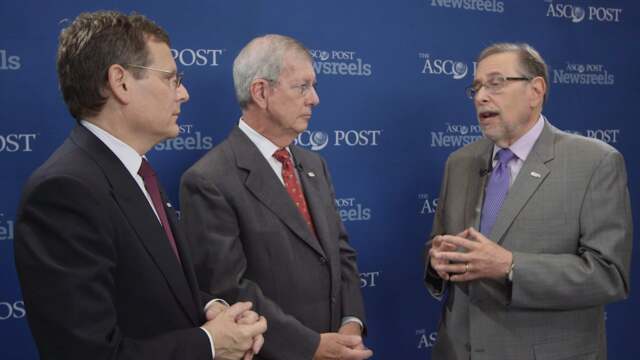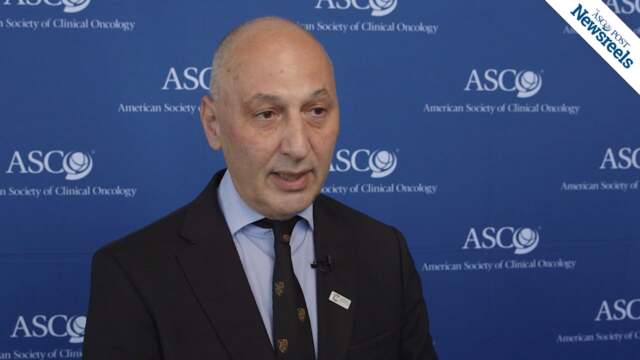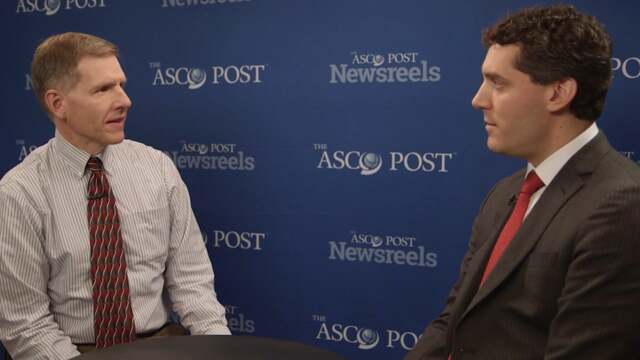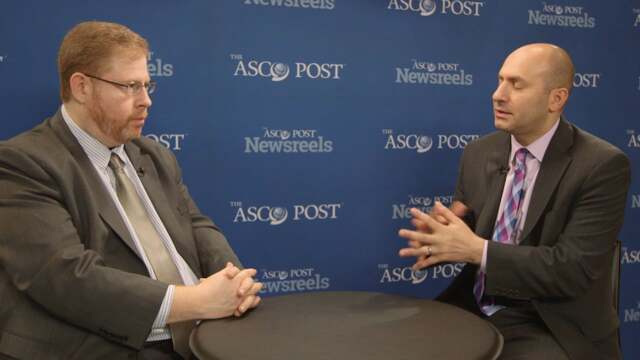Nagi S. El-Saghir, MD, PhD, and Mary Gospodarowicz, MD, on The Middle Eastern Perspective of Cancer Research
2016 ASCO Annual Meeting
Nagi S. El-Saghir, MD, of the American University of Beirut, and Mary Gospodarowicz, MD, of the Princess Margaret Hospital, discuss oncology from an international point of view.
Richard L. Schilsky, MD (right), Chief Medical Officer of ASCO, talks with incoming ASCO CEO Clifford A. Hudis, MD (left) and outgoing CEO Allen S. Lichter, MD (center) about the passing of the torch and their perspectives on past accomplishments and future goals of the society.
John P. Neoptolemos, MD, PhD, of the University of Liverpool, discusses findings from this international phase III study of adjuvant combination chemotherapy: gemcitabine and capecitabine vs monotherapy gemcitabine in patients with resected pancreatic ductal adenocarcinoma (Abstract LBA4006).
Anthony J. Olszanski, RPh, MD, of Fox Chase Cancer Center, and Michael A. Postow, MD, of Memorial Sloan Kettering Cancer Center, discuss findings from this phase III trial of nivolumab combined with ipilimumab in treatment-naive patients with advanced disease (Abstract 9505).
Jonathan E. Rosenberg, MD, of Memorial Sloan Kettering Cancer Center, and Toni K. Choueiri, MD, of the Dana-Farber Cancer Institute, discuss mutation burden—its role in response to treatment with PD-L1 immunotherapy and its impact on progression-free survival and overall survival, as well as the link between intrinsic expression subtypes and treatment outcome with atezolizumab (Abstract 104).
Eric Roeland, MD, of the University of California, San Diego, and Timothy E. Quill, MD, of the University of Rochester Medical Center, discuss the debate on whether physician-assisted death should be a legally available option at the end of life when neither palliative nor hospice care is satisfactory.





